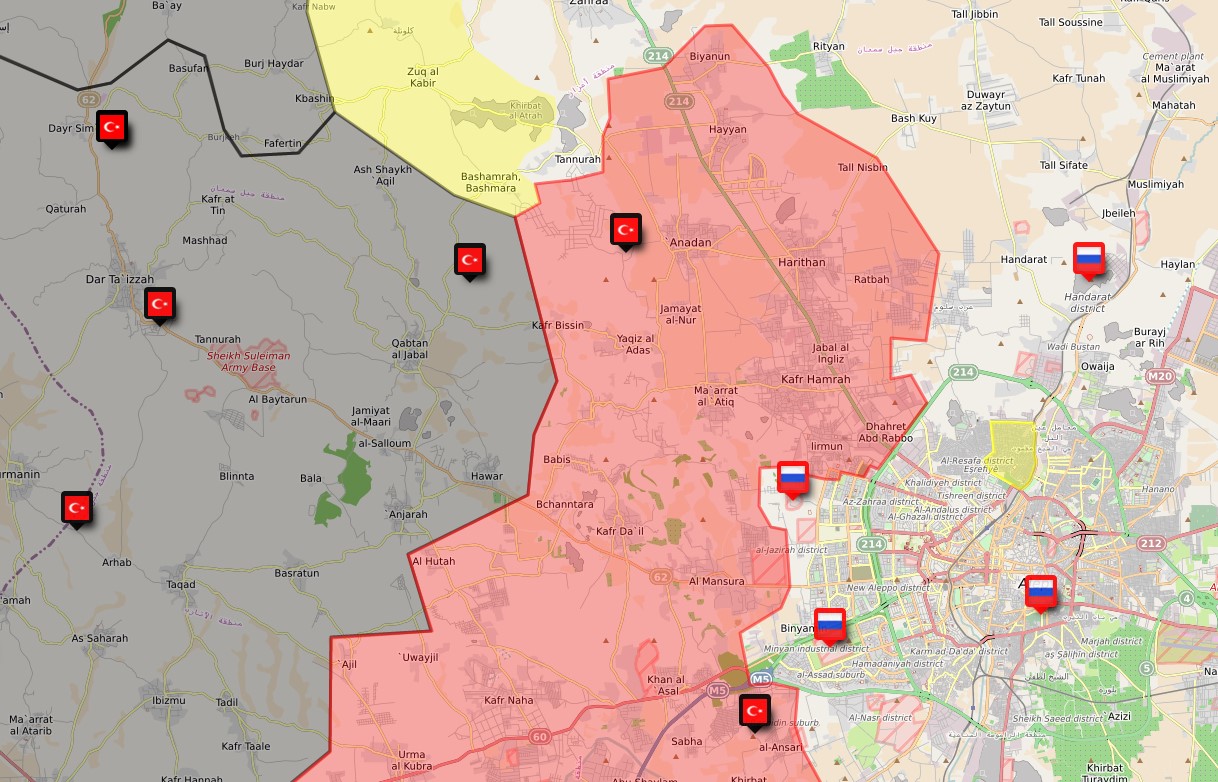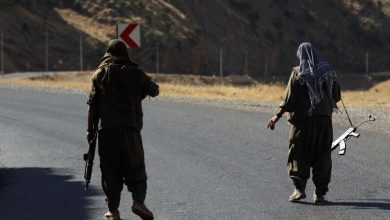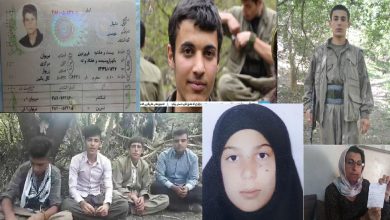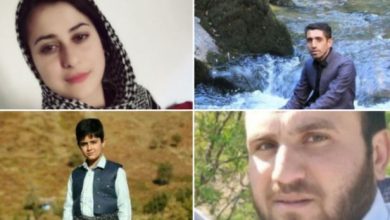“Soon the city will be cleaned of PKK/PYD terrorists, please cooperate with our forces.”
That is what was said on flyers that were dropped by Turkish UAV’s over the Tel Rifaat area.
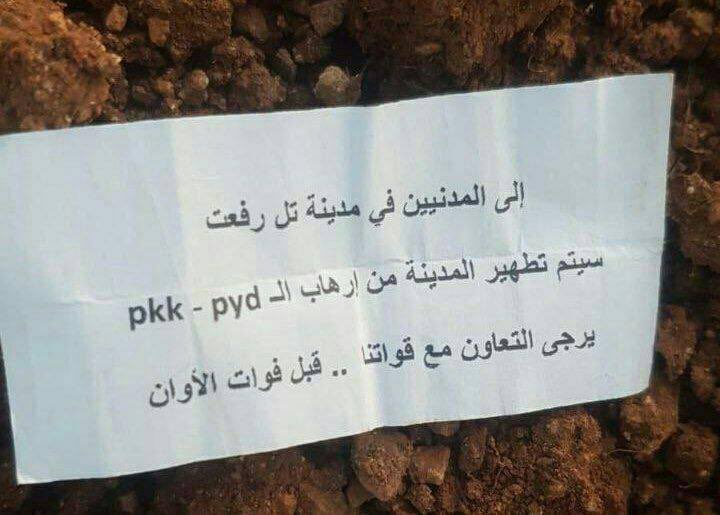
A Turkish official has made a statement to Reuters regarding the same area:
“It is essential that the areas, notably the Tel Rifaat region from which attacks are constantly carried out against us, are cleansed”.
Reports state that YPG militants have started to dig trenches along the city among other preparatory actions for a possible Turkish invasion.
Articles appearing in Turkish state-affiliated media outlets also provide reasoning for the incoming invasion. An example can be seen in the following text published by Anadolu Agency:
“Russia has not followed through on its promises to control the YPG/PKK in Syria, with the terrorist organization staging several attacks in the safe zones the Syrian National Army has formed with the support of Turkey.
The YPG/PKK, which occupies roughly a third of Syria’s territory with the support of the US, frequently targets Azaz, Marea, Al Bab, Jarablus, Afrin, Tal Abyad and Ras al-Ayn in the north of the country with heavy weapons.
In their attacks, the terrorists use advanced heavy weapons such as TOW missiles, multi barrel rocket launchers and Katyusha and Grad missiles as well as US and Russian-made rocket launchers and mortars.
The Tal Rifaat area of Aleppo, located 18 kilometers (11 miles) from the Turkish border, stands out during these attacks.
The YPG/PKK, which captured Tal Rifaat in February 2016 with Russian air support, is attacking Turkish security forces and opposition fighters’ positions which are providing security in the settlements in the Operation Euphrates Shield and Operation Olive Branch regions.
The YPG/PKK displaced approximately 250,000 civilians in Tal Rifaat who sought refuge in areas close to the Turkish border.
The most attacked area after Tal Rifaat is the Manbij region of Aleppo, located 30 kilometers (18.6 miles) from the Turkish border, and Kobane district on the border.
The YPG/PKK also threatens the security of Tal Abyad and Ras al-Ayn districts located in the Operation Peace Spring region on the Syria-Turkey border.
The terrorist group also fires mortars and heat-seeking missiles over the villages of Tal Tamr, Tell Derdara and Abu Ras Ayn to the Ras al-Ayn countryside.
In addition to carrying out car bombings in civilian settlements, the YPG/PKK feeds the conflict environment by making attempts to infiltrate positions of the Syrian National Army on the front lines from time to time.”
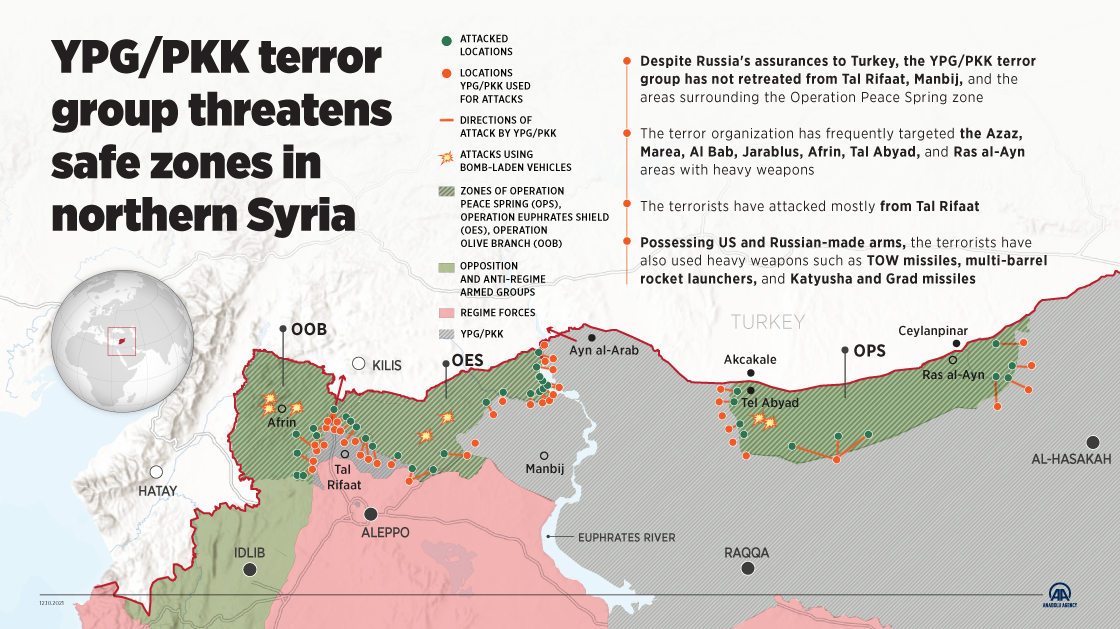
Other Syria analysts describe a possible deal struck between Russian President Wladimir Putin and President Erdogan in Sochi on Oct, 15. This alleged deal includes a territorial swap agreed on by both sides.
Syrian analyst Ibrahim Hamidi described this territorial swap in an article for al-Monitor:
In addition to different interpretations of these agreements, Erdogan and Putin also disagree on priorities. For Erdogan, the Kurdish threat east of the Euphratestops all other priorities in Syria, whereas Putin has stressed that the “liberation” of Idlib stands high on his list. Amidst the most recent escalation, Turkish experts have unearthed an earlier proposal to “swap” the Latakia-Aleppo Highway (M4) running through Idlib in exchange for Russian efforts at forcing the Kurdish People’s Protection Units (YPG) out of an Aleppo suburb—making sure that YPG fighters are thirty kilometers away from the Turkish border. This would be per an October 2019 agreement approved by Putin and Erdogan.
Essentially, Erdogan is implementing the aforementioned March 2020 Moscow agreement on Idlib. As part of that agreement, Turkey plans to destroy HTS in exchange for Putin implementing the October 2019 Sochi agreement on east Euphrates, and pushing the YPG out of some areas in northeast of Syria—a group Erdogan views as a direct threat to Turkish national security.
Back in December 2016, the Turks abandoned the strategic city of Aleppo in exchange for Putin turning a blind eye to Ankara’s occupation of Jarablus, al-Bab, and Azaz. This formed the core of what came to be known as the “Euphrates Shield” area, where Turkey led a cross-border operation to oust ISIS and YPG from its border with Syria. Then came another swap at the beginning of 2018, when the Russians ignored a Turkish operation in the city of Afrin, west of the Euphrates, in exchange for allowing Syrian government troops to overrun opposition strongholds in East Ghouta, securing Syria’s capital of Damascus. On both occasions, Erdogan seemed willing to sacrifice his Syrian proxies to score points against the YPG.
Talks of such a territorial swap are back on the table now, amidst a common Turkish-Russian belief that the US is preparing to disengage from the Middle East, as they did with Afghanistan. If the US withdraws its troops from Syria—a view not shared by Syrian Kurdish leaders—then the Syrian battlefield will be for Ankara and Moscow to divide amongst themselves.
Putin has been trying to breathe life into the Adana agreement for two years—an agreement between Damascus and Ankara struck in 1998 to maintain a buffer zone along the Turkish-Syrian border. Not only would it restore security ties between Syria and Turkey, but also stabilize the entire border area. Originally created to root out the Kurdistan Workers’ Party (PKK)—deemed a terrorist organization by Turkey, the US, and European Union—from Syria, the Adana agreement gives the Turks the right to enter up to five kilometers into Syrian territory in pursuit of the PKK. Erdogan has accepted returning to the agreement, with amendments, however, expanding the area into which he can enter up to thirty kilometers.
Neither Putin nor the Syrians seem to mind that possibility. To give Erdogan an additional layer of security, the Russians are toying with the idea of deploying their troops along the border to keep the PKK at bay. If that is achieved, it would be one less issue for Russia and Turkey to worry about. After all, Syria is one of many bilateral issues ranging from Libya to Nagorno-Karabakh, and both Erdogan and Putin realize that they have nothing to gain from further disagreement over Idlib province. An agreement is far easier and less costly than an escalation and especially war.

